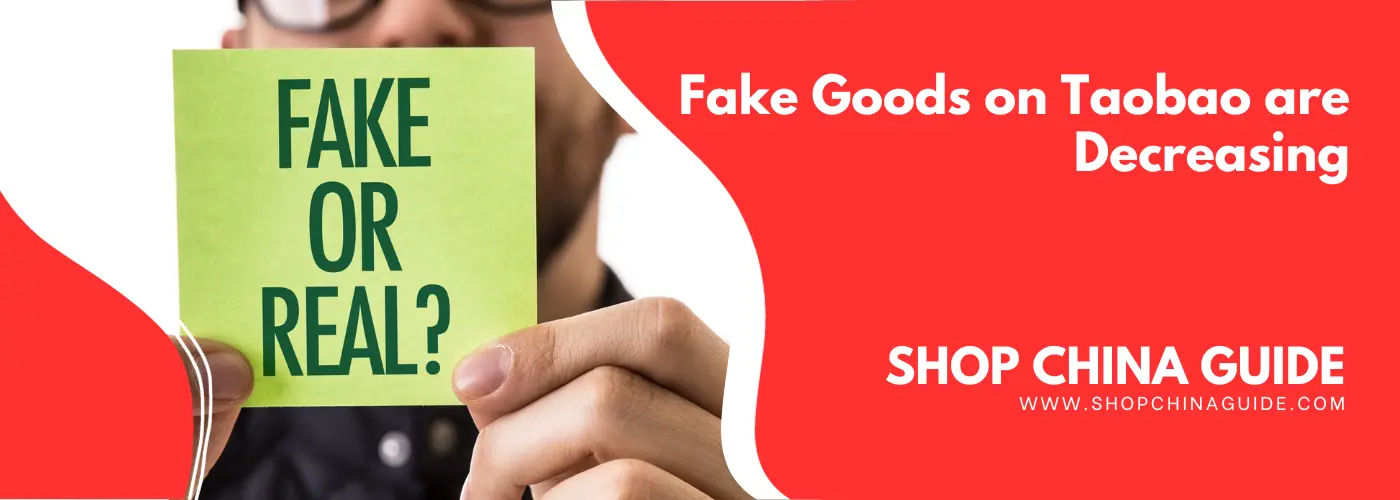Taobao, an online shopping platform owned by Alibaba Group, has been a dominant player in China’s e-commerce market for years. However, in its earlier years, Taobao was often criticized for being a hotbed of counterfeit goods. From high-end designer bags to exclusive sneakers, it seemed you could find a knock-off version of almost any product on Taobao. The ubiquity of these counterfeit goods posed significant risks to consumers and caused damage to the reputation of genuine brands.
Fast forward to the present day, and the situation on Taobao has noticeably changed. The number of counterfeit goods has drastically decreased, and the platform is taking on a new image as a hub for legitimate and quality products. The once ubiquitous fake goods are becoming less common, and consumers are feeling more confident shopping on the platform.
Why is there not much fake stuff on Taobao anymore?
Social Changes Impacting Consumer Behavior
Shifts in Social Economic Conditions and Consumer Behavior

China’s growing affluence and the rise of a more informed, younger generation has played a pivotal role in reshaping consumer behavior. This burgeoning middle class, coupled with a generation that is more tech-savvy, have increasingly been showing a preference for quality, authenticity, and originality. The trend of prioritizing genuine goods over counterfeits corresponds to the dwindling number of counterfeit goods on Taobao. People are now more willing and able to pay for genuine products, thus diminishing the demand for counterfeit goods. This change in consumer behavior mirrors China’s broader economic transition, as the country shifts from being the world’s factory to placing a greater emphasis on innovation, creativity, and quality.
The Influence of Social Media and Consumer Review Platforms
The advent and growth of social media and consumer review platforms have raised the stakes for sellers engaged in counterfeit goods. A single negative review can spread quickly and widely, causing significant damage to a seller’s reputation and trustworthiness. Platforms like Weibo and Little Red Book allow consumers to share their experiences and opinions about products, which potential buyers often refer to before making a purchase. Taobao itself has incorporated a robust review and rating system, which further discourages sellers from offering counterfeit goods. This rise of digital word-of-mouth creates a layer of accountability for sellers, contributing to the reduction in fake goods.
Influence of E-commerce Competitive Environment
Strategy and Market Position of Competitors like JD.com and Pinduoduo
Another unique perspective to understand the decline in counterfeit goods on Taobao is to consider the impact of its competition. With the rapid development of China’s e-commerce market, the rise of platforms such as JD.com and Pinduoduo has put pressure on Taobao. These platforms have made substantial efforts to combat counterfeits and assure the quality of goods sold.
JD.com, in particular, operates on a dual model of self-operated and third-party sales, allowing for strict control over the quality of its self-operated products from sourcing to sales. This has significantly reduced the likelihood of consumers buying counterfeit goods on its platform. This reputation for authenticity has incentivized Taobao to increase its efforts in combating counterfeits to maintain its leading position in the e-commerce market.
Increasing Consumer Choices and Improvement of Platform Service Quality
Pinduoduo, on the other hand, has adopted a strategy of directly connecting farmers and factories to sell goods at very low prices. Although there have been some quality concerns, the price advantage is undoubtedly very attractive to a certain group of consumers.
Therefore, the strategies and market positions of these competitors may also be a reason for the decrease in counterfeit goods on Taobao. As consumers have more options, platforms must offer better product quality and services to maintain their market share. This competitive environment undoubtedly has a positive impact on Taobao and other e-commerce platforms, pushing them to be more resolute and committed to combating counterfeit goods.
Policy Factors by the Chinese Government
Stricter Copyright Laws
The Chinese government has implemented stricter copyright laws over the years to protect intellectual property rights. These laws have put more pressure on platforms like Taobao to ensure that all goods sold on their platforms are authentic and do not infringe any copyrights.
Increased Penalty Severity
Alongside stricter copyright laws, the penalties for producing and selling counterfeit goods have also increased significantly in China. These penalties include heavy fines and even imprisonment, creating a strong deterrent against the sale of counterfeit goods.
Implementation of the New E-Commerce Law in 2019
The Chinese government implemented a new E-Commerce Law in 2019. This law stipulates that e-commerce platforms are liable for counterfeit goods sold on their platforms if they fail to take appropriate action after being informed of the sale of such goods. This law has placed greater responsibility on platforms like Taobao to monitor and control the quality of goods sold on their platform.
Public Awareness on Intellectual Property Rights
The government has also put efforts into raising public awareness about intellectual property rights. The aim is to decrease demand for counterfeit goods by educating consumers about the harms of buying these products. This increased public awareness has played a part in the reduction of counterfeit goods on Taobao.
Taobao’s Own Initiatives
Strict Requirements for Sellers
Alibaba Group has taken significant steps to tighten its requirements for sellers on its platform. These measures include:
- Comprehensive Verification: Before sellers can list products, they are required to undergo thorough verification procedures. This includes proving the authenticity of their business and the goods they intend to sell.
- Investigations into Sellers’ Backgrounds: Alibaba conducts detailed investigations into the backgrounds of sellers, aiming to ensure that they are legitimate businesses and not involved in any illicit activities.
- Strict Inspection of Product Sources and Quality: Alibaba places a strong emphasis on the traceability of products sold on Taobao. Sellers must provide evidence of the legitimacy of their supply chains, and the quality of their goods is rigorously checked.
Enhanced Tracking Capabilities
With the advancement of technology, Alibaba has managed to amplify its tracking capabilities to identify and penalize sellers who breach the rules:
- Use of Data Analysis Technologies: Alibaba uses advanced data analysis technologies to trace and identify sellers who might be dealing in counterfeit products.
- Effective Identification and Penalty for Rule-Breaking Sellers: Sellers found to be in violation of the rules face strict penalties, including the possible closure of their online stores.
Cooperative Efforts
Alibaba has taken a collaborative approach to tackling the issue of counterfeit goods:
- Global Collaboration: The company works in partnership with brands, manufacturers, and government bodies worldwide to fight against the production and sale of counterfeit goods.
- Cross-Industry and Cross-Border Collaboration: These collaborations span industries and countries, and have produced significant results in reducing the availability of counterfeit goods on the platform.
Consumer Education
Increasing consumer awareness about counterfeit goods is a key part of Alibaba’s strategy:
- Raising Awareness about Counterfeit Goods: Alibaba works to educate consumers about the risks and characteristics of counterfeit goods.
- Teaching Consumers to Identify and Report Counterfeit Goods: Consumers are taught how to identify potential counterfeit goods and report them, assisting the platform in taking swift action against fraudulent sellers.
You may also like: Why do sellers on Taobao call buyers “qin”?

